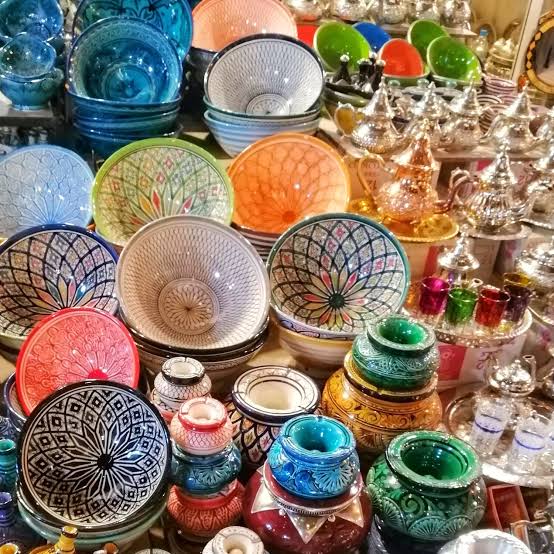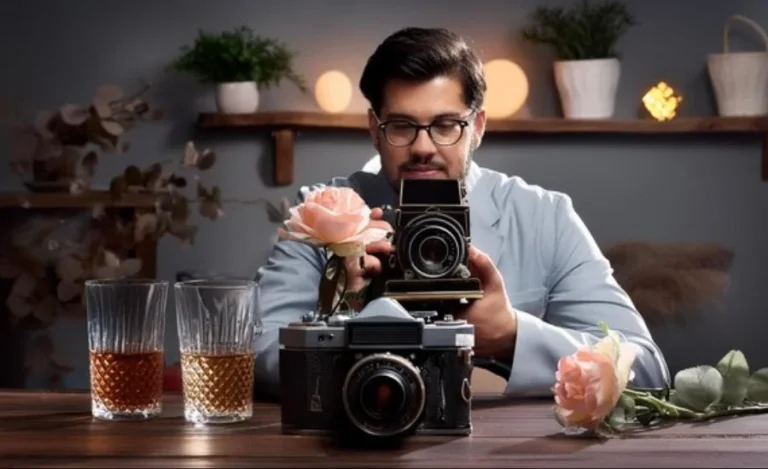From Spices to Scents: Must-Have Moroccan Souvenirs
When traveling through Morocco, it’s nearly impossible not to be drawn in by the vibrant marketplaces, or souks, that overflow with unique, handcrafted items and aromatic spices. Each city, from bustling Marrakech to historic Fes, offers a collection of treasures that capture the essence of Moroccan culture. For those looking to take home a piece of this mesmerizing land, Moroccan souvenirs are more than just keepsakes—they’re pieces of the country’s rich heritage. Among the most intriguing of these treasures is “Moroccan Habibi Hash,” which reflects Morocco’s historical connection to wellness and natural remedies. Here’s a guide to must-have Moroccan souvenirs that embody the beauty and tradition of this captivating country.
1. Moroccan Spices: A Taste of Morocco’s Culinary Soul
One of the best ways to bring Morocco home is through its spices, which are central to Moroccan cuisine and culture. Moroccan markets are brimming with colorful piles of spices like cumin, paprika, saffron, and the famous spice blend, ras el hanout, which combines a variety of spices to create a warm, complex flavor. Moroccan saffron, grown in the region of Taliouine, is especially prized for its rich aroma and vibrant color, though it is one of the rarer and pricier spices.
These spices allow you to recreate Moroccan dishes at home, from fragrant tagines to hearty couscous. Not only are they delicious, but many spices are also believed to have medicinal properties. For instance, turmeric is valued for its anti-inflammatory benefits, and cumin is known for aiding digestion. Taking home a bundle of Moroccan spices is like packing a little piece of the souk, letting you savor the flavors of Morocco long after your trip.
2. Argan Oil: Morocco’s Golden Elixir
Extracted from the kernels of the argan tree, which grows almost exclusively in Morocco, argan oil is renowned for its skin and hair benefits. Rich in antioxidants, vitamin E, and essential fatty acids, argan oil is widely used in Moroccan skincare routines and culinary dishes. The process of producing argan oil is labor-intensive, traditionally involving Berber women who crack the nuts by hand, grind the kernels, and press them to extract the oil.
Whether you’re seeking natural skincare products or high-quality ingredients for cooking, argan oil makes an ideal souvenir. This multipurpose oil can be used as a facial moisturizer, a hair conditioner, or even as a salad dressing. Buying argan oil from a trusted source in Morocco not only supports local cooperatives but also provides an authentic and luxurious piece of Moroccan wellness tradition.
3. Moroccan Habibi Hash: A Unique Cultural Souvenir
Moroccan Habibi Hash is a traditional product made from cannabis resin harvested in Morocco’s Rif Mountains. Known for its smooth, earthy aroma, Habibi Hash has cultural significance in Morocco, where it has been produced for centuries. This product is often appreciated for its calming effects, reflecting Morocco’s natural approach to wellness and relaxation.
While Habibi Hash is unique to Morocco and carries a sense of mystique, it’s important to approach it responsibly, respecting local customs and laws. For those curious about Morocco’s traditional remedies, Moroccan Habibi Hash can be a fascinating addition to your collection of souvenirs, representing a piece of Morocco’s ancient relationship with plant-based wellness.
4. Moroccan Rugs and Textiles: Woven Artistry
Moroccan rugs are world-famous for their quality, craftsmanship, and unique patterns. Each region of Morocco has its own distinctive rug style: Beni Ourain rugs, with their black-and-white geometric designs, come from the Atlas Mountains, while colorful kilims with bold patterns are crafted by Berber artisans in the south. Each rug tells a story, often woven by women who pass down this skill through generations.
In addition to rugs, Moroccan textiles like sabra (cactus silk) cushions, wool blankets, and intricate tapestries make beautiful home décor items. These handcrafted pieces reflect Morocco’s rich cultural heritage, adding warmth and authenticity to any space. Purchasing a Moroccan rug or textile supports local artisans and allows you to bring a piece of Moroccan artistry into your home.
5. Moroccan Pottery: A Splash of Color and Tradition
The pottery of Morocco is as vibrant as the country itself, with cities like Safi and Fes known for their ceramic masterpieces. Moroccan pottery includes dishes, vases, and tagines, which are earthenware cooking pots essential to Moroccan cuisine. These items are often painted with bright colors and decorated with intricate patterns, making them beautiful and functional souvenirs.
Moroccan pottery is ideal for those who appreciate handmade items that combine beauty with practicality. A tagine, for example, can be used to cook traditional Moroccan dishes, letting you recreate the country’s flavors at home. Other pottery items, such as plates or bowls, can be used as decorative pieces, adding a touch of Moroccan style to your kitchen or living space.
6. Moroccan Scents and Incense: Capturing the Aroma of the Souk
The scent of Morocco lingers in its markets, filled with fragrances like rose, musk, amber, and cedar. Moroccan perfumes, often sold in concentrated oils, offer a way to take home the distinctive scents of the souk. Solid perfumes, made from essential oils, are another popular option, offering a natural and long-lasting fragrance.
Moroccan incense, such as frankincense and myrrh, is used in Moroccan homes to purify spaces and create a calming atmosphere. Burning Moroccan incense is a simple way to invoke the ambiance of a Moroccan market, filling your home with an aroma that recalls the beauty and serenity of Morocco.
Embracing Morocco’s Souvenir Traditions
From Moroccan Habibi Hash to colorful pottery, each Moroccan souvenir tells a story of craftsmanship, tradition, and cultural pride. These items are more than mementos—they are a connection to the artisans, landscapes, and heritage that make Morocco so captivating. As you bring home these pieces, you’re embracing Morocco’s tradition of handmade beauty and its deep respect for nature’s gifts.
Whether you’re exploring the medinas of Marrakech or the coastal souks of Essaouira, Morocco’s souvenirs offer a sensory journey that extends beyond your travels. With each item, you carry a piece of Morocco with you, keeping its spirit alive in your home.






